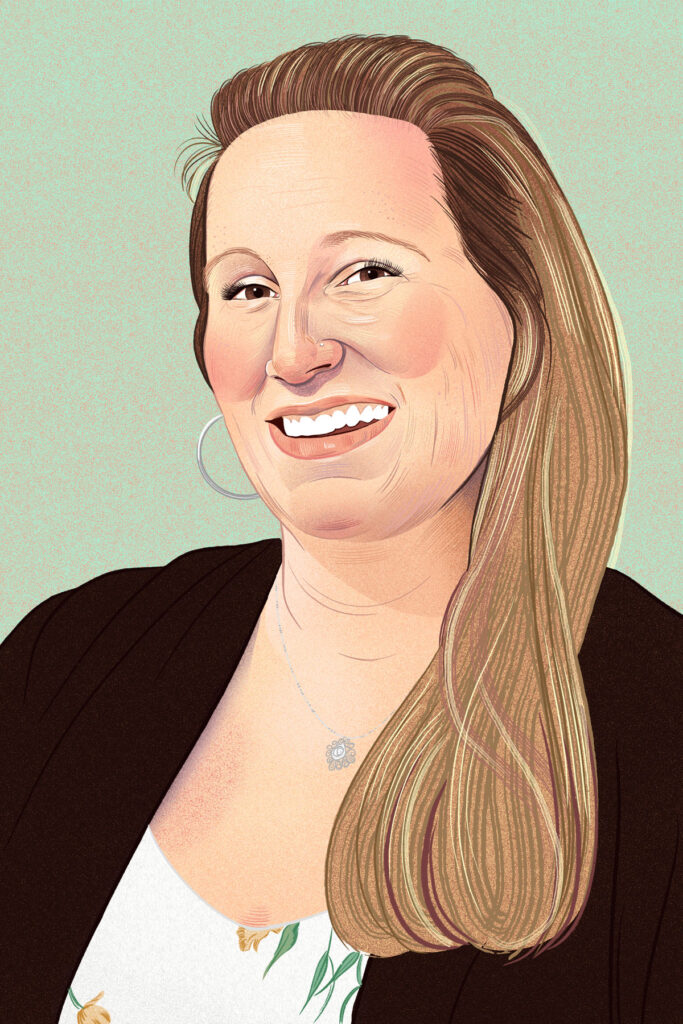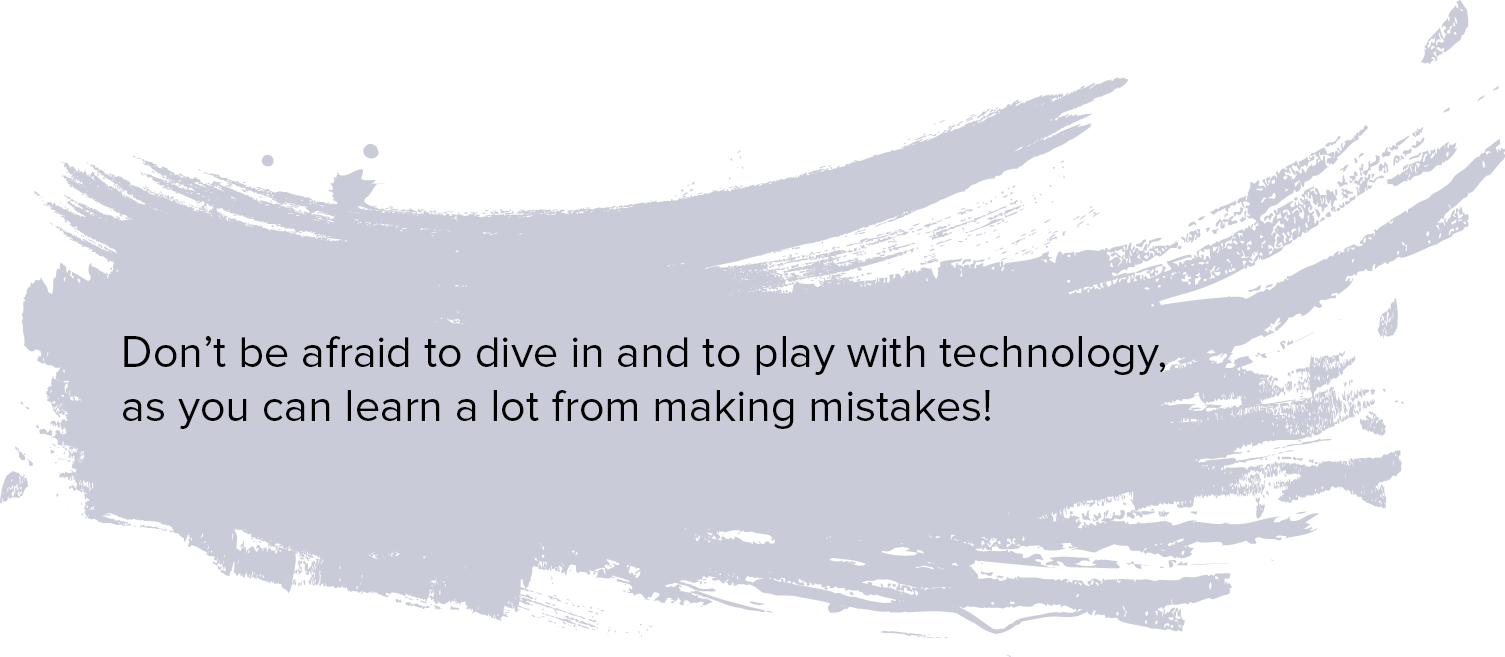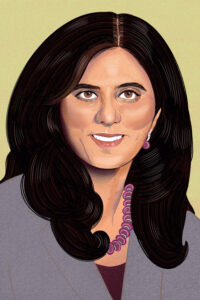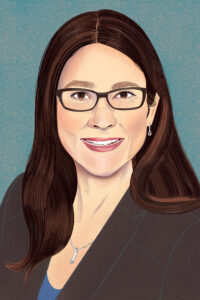Melanie Anderson is the Director of Cryptographic Security and Systems Development, part of the Canadian Centre for Cyber Security at the Communications Security Establishment.… Melanie and her team are responsible for Canadian Communications Security (COMSEC) policy and compliance, evaluating the security of cryptographic products, providing cryptographic advice and guidance, including preparations for the quantum threat to Cryptography, and modernizing the Government of Canada’s classified infrastructure. Melanie is an Executive Champion of the Women in Cyber and Intelligence (WICI) group at CSE and CSE’s Co-Executive Champion for Women in Defence and Security (WiDS) in Canada. She is passionate about promoting the well-being of women in the workplace, mentoring and encouraging girls and young women to pursue careers in STEM.
Since joining CSE in 2003, Melanie has served in several positions across the organization, including software developer, technical trainer, and project manager for IT systems used by Government of Canada clients. She spent four years based in the United States as a technical liaison for CSE at the National Security Agency. On returning to Canada, she spent three years in incident management and cyber defense leadership roles. Before assuming her current role in 2020, Melanie was the Manager of Cryptographic Systems Development.
Melanie has a Bachelor of Computer Science from the University of New Brunswick and completed the Senior Executive Fellows Program through the Harvard Kennedy School in 2020.
In addition to her career in cybersecurity, Melanie is an avid singer and musician. She performs locally as a professional opera singer and spent many years teaching piano and voice. She is fluent in French and Italian and enjoys playing basketball, golf and traveling. She is based in Ottawa, Ontario, with her partner, two cats and a corgi. Show more


LEADERS IN CYBERSECURITY
Melanie Anderson
Director, Cryptographic Security and Systems Development, Canadian Centre for Cyber Security
What does a typical day of work look like for you?
A typical day for me includes connecting with people through in-person and virtual meetings, chats and emails with my teams, colleagues and clients – lots of communication! My days are filled with problem-solving, coaching conversations, curiosity, mentoring, continuous learning and delivering presentations in both official languages. I have multiple email systems to stay on top of. I bounce between meetings that cover topics from operational issues and finance to strategic visioning and partnerships.
What aspects of your career journey have taken you by surprise?
Being from a small place in New Brunswick, I never imagined how much I would learn and where my career would take me when I started in computer science 25 years ago. The variety of jobs I’ve held over the past 20 years and the brilliant people I’ve worked with and learned from has me pinching myself, even today. My biggest shock was when I was selected to be a technical liaison for CSE at the National Security Agency in the U.S. You never know where your career will take you – the sky is the limit in cybersecurity.
Tell us about the cyber project you're most proud of working on in your career.
One of the projects I’m most proud of working on in my career was leading BIG DIG at CSE, an annual international classified cyber defense innovation event that brings together 100+ people from varying backgrounds to solve complex cybersecurity problems. I co-led this event for three years. I collaborated with many colleagues and partners to make the event a success, and we had so much fun! I worked with brilliant people at all stages of their careers and met many wonderful partners from across the cyber defense community. Outcomes from these events directly contributed to the cyber defense program used today to defend Canada from cyber threats, so it is something I look back on fondly and truly treasure.
How has public perception of cybersecurity changed over the course of your career, and how do you predict in the future?
Cybersecurity used to be viewed as only significant for IT departments in governments and big tech companies. Fast forward to today, cyber threats have become pervasive as more devices connect to the internet and technology rapidly changes – everyone has to think about cybersecurity now. Incidents are all over the news. Today and in the future, cybersecurity is everyone’s business. You don’t have to have a STEM degree to care about or contribute to our collective cybersecurity posture. I’m proud to be part of the Canadian Centre for Cyber Security. Here, we help defend and protect Canada from cyber threats and educate people on effective cybersecurity hygiene through campaigns like GetCyberSafe.
Tell us about your first job (can be anything!) and one lesson you might have learned from it.
My first job was at a Community Access Centre in high school, where I taught people how to set up email accounts, search the internet, and use Microsoft Word and Excel. It was a sweet summer gig! Looking back, I’ve always loved teaching and helping people understand technology. I learned that adapting to people’s learning styles and being able to explain things in different but simplistic ways is a powerful skill to have. It helps empower people to feel they can learn complex topics and enables you to understand other perspectives and viewpoints as a teacher. I have used this skill in every job I’ve held over the past 20 years, for example, when I talk to people about the quantum computing threat to cryptography.
What’s one piece of advice you’d give your younger self about getting started in cyber?
Don’t be afraid to dive in and play with technology; you can learn a lot from making mistakes! Ask lots of questions and know you’re not alone in solving problems. There is power in different people’s perspectives. Even though you have a basic question, chances are others are thinking about it too – be bold and ask away!

Tell us about a role model or mentor who has helped shape your career.
The first person who comes to mind is a former boss. She was not just a boss but a mentor and a technical woman role model for me and many others in our community! I learned and constantly grew under her guidance. As a mathematician, she helped me understand the cryptography landscape I now lead. She addressed my fears and gave me confidence in my abilities by guiding me with kindness and creating an environment for me to grow. I am grateful for working for her. She helped me realize the importance of helping other women in our field, which is why I am so passionate about mentoring and giving back to others!
A meeting gets canceled and you have a surprise 30 minute window of free time — how do you spend it?
I love it when this happens! Surprise time is the best. Most of the time, I use this time to catch up on email and chat or to address urgent tasks due by the end of the day. Sometimes I ask a colleague for a coffee to catch up. Sometimes I use the time for myself – to breathe, reflect on how things are going and step away from a screen to think about what I can do to improve as a leader. It depends on how I feel and the pressures I face that day.
What are the ways you stay grounded and take care of yourself?
To stay grounded, I try to be honest with others about the challenges we face as leaders in cybersecurity and what life can sometimes bring when we least expect it. We are all human and have lives outside of work! I believe being authentic resonates with people and encourages them to be themselves. I reflect and try and see opportunity in challenges, recognizing that I can always learn more from the people around me. I take care of myself by taking time for my health. I connect with the things that give me joy, like yoga, singing, walking my dog or mentoring someone I believe in.
When you think about your personal legacy as a leader, what do you hope people will remember?
I hope people will remember that there is a way to be kind, genuine and effective as a leader, even in the face of adversity and when there is pressure to deliver at work. I believe in mentoring others because I would not be where I am today without people believing in me and giving me confidence in my own abilities. I hope the folks I have mentored will pass on their knowledge to the next generation of talent. I hope people will remember me for how I made them feel about themselves. It’s amazing what people can do when others believe in them!





